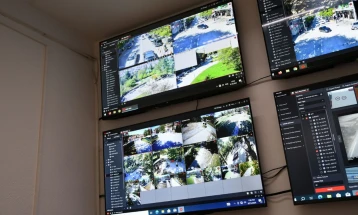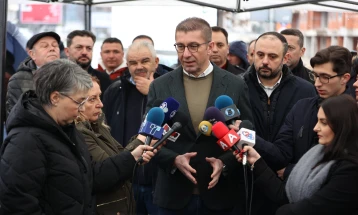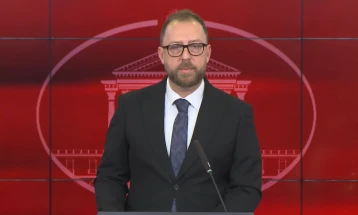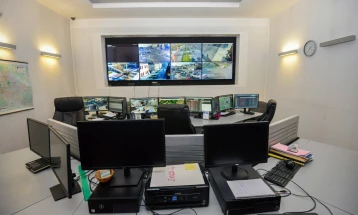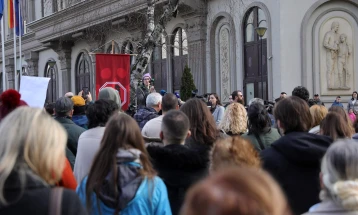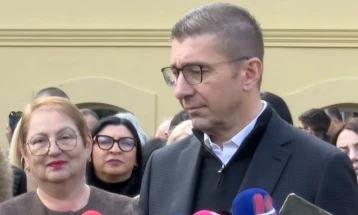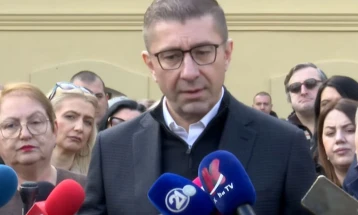Tensions rise over future of the world’s largest security body
- Moscow has claimed another casualty in its invasion of Ukraine: the world’s largest security body.
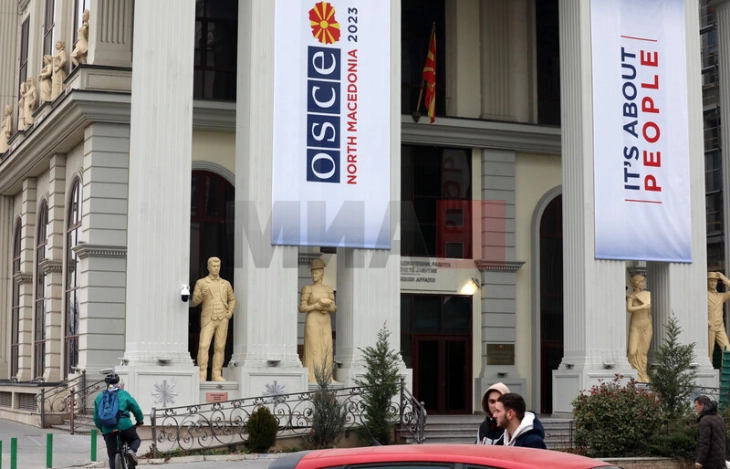
25 November 2023
Politico
The Organization for Security and Cooperation in Europe is at a standstill as Russia is blocking Estonia from taking over as chair.
Moscow has claimed another casualty in its invasion of Ukraine: the world’s largest security body.
Since 2021, the Organization for Security and Cooperation in Europe (OSCE) has been at a standstill, with Russia refusing to approve Estonia taking over as chair in 2024. Now a possible solution is emerging — but it is proving divisive for the EU.
This week Russia (and Belarus) reiterated they are not willing to let Estonia take over running the OSCE for next year. Government officials from Estonia, which has been the candidate since 2020, did not hide their anger.
“For years now, Moscow has prevented the organization from adopting its budget, holding official OSCE events, and extending foreign missions, resulting in the end of all OSCE foreign missions in Ukraine, which has been subjected to Russia’s aggression,” Estonian Foreign Minister Margus Tsahkna said in a statement on Tuesday. “As Russia is violating all fundamental principles of the OSCE with its bloody war of aggression, it is unacceptable to be subject to Moscow’s demands and blackmail.”
The OSCE is a body born from the Cold War, made up of 57 countries from Europe, North America and Asia (although not China or India). Its mandate includes monitoring elections and supporting peace negotiations.
With its a system requiring unanimity, the OSCE is among international bodies exposed to the Kremlin’s pursuit of reshaping the global order in light of its war in Ukraine. The Russian invasion has jeopardized the basic concept of cooperative security, which the OSCE embodies.
Moscow has long been critical of the OSCE, accusing it of having turned into a Western tool. The Russians have also taken advantage of the need for unanimous decision-making at the OSCE by utilizing their ability to block decisions, said Latvian President Edgars Rinkēvičs.
Russia’s ability to freeze OSCE’s decision-making process is being followed closely in Brussels, for several reasons. These include that the contract of the OSCE’s secretary general, Helga Schmid — a well-known figure because she was a top official at the European External Action Service — expires next month. A number of diplomats said Schmid’s future is among the victims of the standstill created by the Russian veto.
A key ministerial meeting is due to take place in North Macedonia (which holds the current OSCE presidency) later this month. Diplomats familiar with the discussions, who were granted anonymity to speak freely, said different options have been floated to address the dynamic with Russia. These include North Macedonia staying on as chair for the whole of 2024 or at least half of it.
Some countries, especially the Baltics, see any other country taking over the chair as a concession to Moscow. But others argue that, in the long run, the OSCE could resume being a vehicle of communication with Moscow if a time comes to negotiate over Ukraine.
North Macedonia continuing its presidency wouldn’t be seen as a Russian victory, Latvian President Rinkēvičs told POLITICO, as “even before Russia invaded Ukraine, it was already obvious that Russians were going to block Estonia’s chairmanship.”
However, one diplomat said an extension for North Macedonia would not still not mean that the OSCE would be able to resume working, and also questioned the country’s will to remain in the role.
Russia appears open to non-NATO countries taking over, according to two of the diplomats. And according to four further diplomats, there’s a growing consensus that Malta could be the solution.
Austria, which was also floated as a possible candidate, said it’s open to the Malta idea. “Austria is in support of every measure maintaining the functioning of the OSCE. As host state of the organization, Austria has a special responsibility,” the Austrian foreign ministry told POLITICO in a statement.
An official from the German foreign ministry, who spoke on condition of anonymity, said “important decisions are pending within the OSCE” and that they would be “exploring possible compromise solutions in Vienna.”
“It is therefore crucial to keep the OSCE functioning,” the German official said.
A decision could come as early as Thursday at a meeting of OSCE diplomats in Vienna. Some of the diplomats say that as Russian Foreign Minister Sergey Lavrov intends to go to the meeting in Skopje, North Macedonia, they are concerned that Lavrov might use the meeting to declare victory if Malta takes over at the helm instead of Estonia.
A number of ministers, according to the same diplomats, have problems with his attendance.
It’s unclear, for example, whether Ukraine’s Foreign Minister Dmytro Kuleba will attend if Lavrov is also there.
“For two years, we have been talking about the need to talk to Mr. Lavrov in the format of a Special Tribunal. Now, we witness the efforts to return him to diplomatic talks and to normalize Russia’s presence,” said Lithuanian Foreign Minister Gabrielius Landsbergis.
